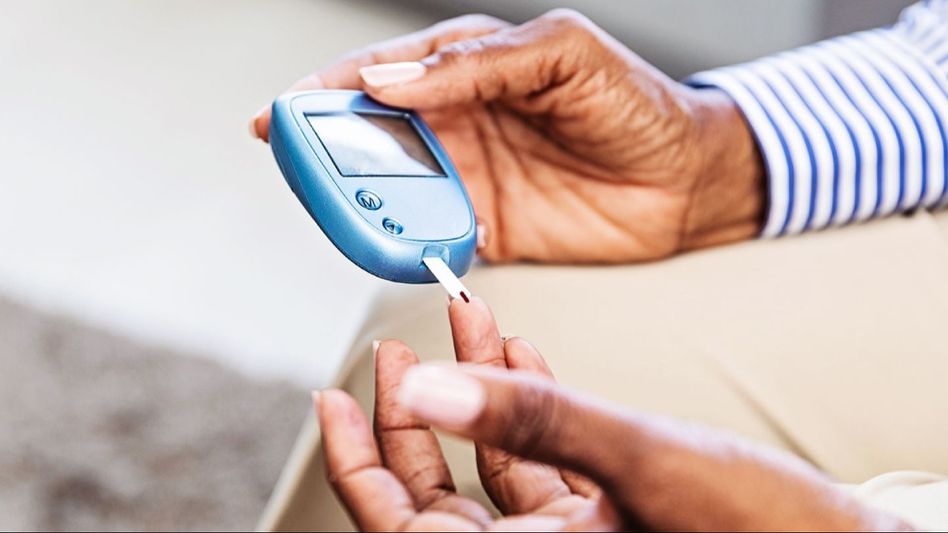Balancing Act: Maintaining Healthy Blood Sugar Levels with Simple Home Remedies
While medication and professional medical advice play crucial roles in managing blood sugar, simple home remedies can complement these interventions and contribute to overall wellness.

In today's fast-paced world, the prevalence of conditions like diabetes and prediabetes is on the rise, making it more important than ever to prioritize our blood sugar levels. While medication and professional medical advice play crucial roles in managing blood sugar, simple home remedies can complement these interventions and contribute to overall wellness.
Understanding Blood Sugar Regulation:
Blood sugar, or glucose, is the primary source of energy for the body's cells and organs. When we consume carbohydrates, our digestive system breaks them down into glucose, which enters the bloodstream. The pancreas then releases insulin, a hormone that helps transport glucose from the bloodstream into the cells, where it can be used for energy. However, factors such as diet, lifestyle, and genetics can influence blood sugar levels, leading to fluctuations that may contribute to health issues if left unmanaged.
Home Remedies for Maintaining Healthy Blood Sugar Levels:
1. Balanced Diet: One of the most effective ways to regulate blood sugar is to follow a balanced diet that includes a variety of whole foods such as fruits, vegetables, whole grains, lean proteins, and healthy fats. Focus on foods with a low glycemic index (GI), which are digested more slowly and cause a gradual rise in blood sugar levels. Avoid sugary and processed foods, which can cause spikes in blood sugar.
2. Portion Control: Pay attention to portion sizes to prevent overeating, which can lead to spikes in blood sugar levels. Use smaller plates, measure serving sizes, and practice mindful eating by savoring each bite and paying attention to hunger and fullness cues.
3. Regular Physical Activity: Engaging in regular physical activity helps improve insulin sensitivity and promotes the uptake of glucose by the muscles, leading to better blood sugar control. Aim for at least 30 minutes of moderate-intensity exercise most days of the week, such as brisk walking, cycling, swimming, or dancing.
4. Hydration: Staying hydrated is essential for maintaining healthy blood sugar levels. Drink plenty of water throughout the day to support kidney function and prevent dehydration, which can affect blood sugar regulation. Limit consumption of sugary beverages and opt for water, herbal tea, or infused water instead.
5. Stress Management: Chronic stress can elevate cortisol levels, which in turn can increase blood sugar levels. Practice stress-reduction techniques such as deep breathing, meditation, yoga, or tai chi to promote relaxation and balance hormones.
6. Herbal Remedies: Certain herbs and spices have been shown to help regulate blood sugar levels. Incorporate herbs such as cinnamon, fenugreek, ginger, and turmeric into your diet either by adding them to meals or brewing them into teas.
7. Adequate Sleep: Prioritize quality sleep, as inadequate sleep can disrupt hormones involved in blood sugar regulation and increase the risk of insulin resistance. Aim for 7-9 hours of uninterrupted sleep each night and establish a relaxing bedtime routine to promote restful sleep.
Maintaining healthy blood sugar levels is essential for overall health and well-being, and simple home remedies can play a significant role in achieving this goal. By adopting a balanced diet, practicing portion control, staying physically active, managing stress, incorporating herbal remedies, prioritizing hydration, and getting adequate sleep, you can support optimal blood sugar regulation and reduce the risk of related health issues. Remember to consult with a healthcare professional before making any significant changes to your diet or lifestyle, especially if you have underlying health conditions or are taking medication for blood sugar management.
Copyright©2025 Living Media India Limited. For reprint rights: Syndications Today









